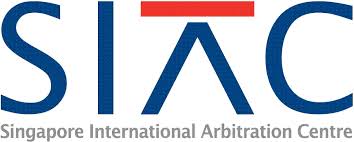The Singapore International Arbitration Centre or SIAC is one of the fastest growing arbitral institutions in the world with 452 new cases received in 2017. The parties to a contract may agree to refer their disputes to arbitration in accordance with the SIAC Arbitration Rules. By doing so, the parties agree that their disputes will be resolved by arbitration and that the arbitration proceedings will be governed by the procedural rules in the SIAC Arbitration Rules, in addition to any mandatory rules at the seat of arbitration. The parties’ agreement is usually recorded in an arbitration clause.
A well drafted arbitration clause can ensure that parties spend less time and costs should a dispute arise. Generally, simple and clear language is preferred. The following standard SIAC arbitration clause may be used depending on the needs of the parties and the particularities of the contract.
 The SIAC recommends that the parties to an international contract include the following SIAC arbitration clause:
The SIAC recommends that the parties to an international contract include the following SIAC arbitration clause:
“Any dispute arising out of or in connection with this contract, including any question regarding its existence, validity or termination, shall be referred to and finally resolved by arbitration administered by the Singapore International Arbitration Centre (“SIAC”) in accordance with the Arbitration Rules of the Singapore International Arbitration Centre (“SIAC Rules”) for the time being in force, which rules are deemed to be incorporated by reference in this clause.
The seat of the arbitration shall be [city, country].
The Tribunal shall consist of [one or three] arbitrator(s).
The language of the arbitration shall be [specify language, e.g., English].
This contract is governed by the laws of [specify the State, e.g., Switzerland].”
The seat of arbitration does not necessarily need to be Singapore and can be any city in the world. When choosing the seat of arbitration, the parties should consider the fact that the mandatory rules of law at the seat of arbitration will typically become applicable. The law of the seat of arbitration will also govern proceedings concerning the annulment of the award. The parties may also specify that the hearings take place in a different city for the convenience of the arbitral tribunal and the parties.
The number of arbitrators will have an impact on the costs of the arbitration. If the amount in dispute is very low, it is preferable to have a tribunal composed of one arbitrator, i.e., a sole arbitrator. To the contrary, if the dispute is complex with high amounts at stake, having a tribunal composed of three arbitrators may provide additional guarantees that supplementary thought was given to a decision. If the parties do not specify the number of arbitrators in the SIAC Arbitration Clause, the SIAC rules provide that a sole arbitrator will be appointed. Three arbitrators may be appointed if it appears to the Registrar that the complexity, the quantum involved or other relevant circumstances of the dispute, warrants the appointment of three arbitrators (Rule 9.1).
The language of the arbitration should usually be the language in which the contract was drafted. The parties may also consider specifying that evidence may be receive in different language without translations if the execution of the contract involves the use of different languages. This precaution may avoid the unnecessary costs related to translations. There may also be two languages of the arbitration, however, this may cause additional costs for interprets and translations.
The choice of the law governing the contract allows the parties to foresee which rules will govern their disputes. The parties are not obliged to select a State law and may only refer to international conventions, e.g., the United Nations Convention on Contracts for the International Sale of Goods. However, international conventions do not address all the issues that may arise during the execution of a contract. Therefore, the election of an applicable law of a State is advisable.
In the event of disparities in the financial means of the parties, they may agree in the SIAC Arbitration Clause that the most fortunate party, which should be identified upfront, will pay the advance on costs or a biggest share of the advance on costs. This may ensure that a party who cannot afford paying the advance on costs of the arbitration will be able to present its case.
